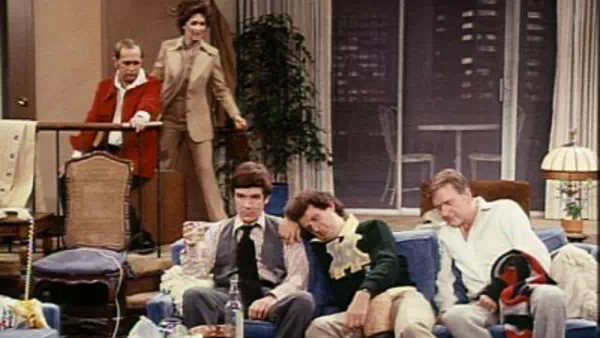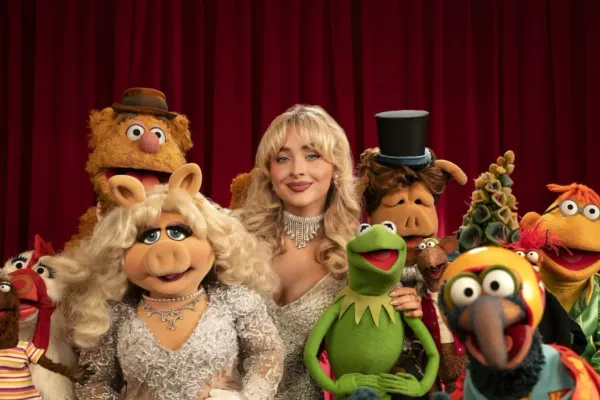An Emily Hartley Thanksgiving, OR Emily Hartley Takes Her Leave
A Fantasia on The Bob Newhart Show Thanksgiving episode

(You probably don’t need to have seen the Bob Newhart Show’s most famous episode, “Over the River and Through the Woods,” to understand this newsletter, but it’s a great episode of TV, so go watch it already! Suffice to say: When Bob Hartley [Newhart] stays home while his wife, Emily [Suzanne Pleshette], goes to visit her family in Seattle for Thanksgiving, he and his male friends become very, very drunk. It’s funny!)

The plot, Bob said, would not begin unless Emily left, and so she left.
Now, she was walking alongside the shores of the Puget Sound, looking for smooth, flat rocks that might skip out over the surface of the water, on into oblivion. By this time of year, there were so few rocks of that sort, but she had a nose for them nevertheless.
Fog had swallowed Seattle this Thanksgiving morning, a sheet between her and the rest of the world. She often felt this way when she left the apartment where she lived, as though she had to step through a thick curtain in order to return to the world she knew to be “the real” world. She had read once about the bends, the condition suffered by divers who returned from the ocean’s depths too quickly. Such a thing might happen to her, she assumed, if she tried to re-enter the world without first making sure the plot could only begin without her.
It had been different when she first met Bob. He was maybe not the most handsome man she had ever seen — with her buxom frame and husky voice, she had attracted many suitors before him — but he was funny. And he had a promising career in psychiatry. And he was interested in what she had to say and supported her career as a teacher. These were things she had not always known to be true of other men she had dated. They were powerful things.
But Bob carried himself with the unearned confidence of a protagonist. One day, he said, he thought he could become a sitcom hero if he really put his mind to it, and the first day an unseen man laughed at one of his antics, Bob’s face burst into a smile. “I think it’s really working,” he said. “I really think it’s working.” From there, more and more laughter, as he actively courted a friendship with a gloomy neighbor and became far too close to his patients. A bold man who could look at a fourth wall and see it as a mere suggestion.
She had always been most at home, well, at home. She thought of her space as just that — her space. But the longer he labored at these efforts, the more she lost whatever her space had been. At first, it had been tolerable, just their neighbor barging on in, or the occasional friend from work. But then, as the laughter followed, suddenly her entire life was on display. They could see her. They were inside her home. They were laughing.
She loved him still, so there was no choice, really, but to go along with it. And she was good at it, really — at offering a withering barb in just such a manner to make them all love her. It could have been worse. She had briefly known a girl in college who landed her own sitcom by having child after child after child. She didn’t seem happy, but the trappings of her life, the laughter that surrounded her, made her seem so. She was lucky to be married to a man whose ambitions were loftier, who longed to wed the simple domesticity of the married life sitcom with zany tales of the modern world, circa 1970s Chicago.
She had feared for a time that he would ask her to have a baby — she had no desire to have a baby — but he seemed uninterested. “It’s hacky,” was all he would say, and that would be that. She didn’t actually want to have a baby, but she also didn’t want her desires to be subject to his creative ambitions. She didn’t like the idea that having his child or not would be a storytelling choice, not a decision they made together. But she was unusual among her friends for not wanting children, and when she came home…
Somewhere out there in the fog, her family waited. She had tried to beckon a few of them down here to the shoreline with her, but no one was interested. She wondered, sometimes, if anything existed outside of her and Bob and the laughter, if the world was real, if the only things that mattered were those that the audience howled at. Bob had released her, had told her that she should go on without him. But had that been how it went? Hadn’t she tried to tell him that it was okay if he stayed in Chicago? Everything was fuzzy on this side of the curtain.
Last night, over the small table full of snacks, the ones that her mother carefully crafted, she had been ambushed by the old woman, who asked when the baby would come. Emily had not told her parents about Bob’s audience. As they were thoroughly unfunny people, she didn’t think the audience would follow them when they came to visit, or when Emily and Bob traveled to Seattle. But she knew she wouldn’t be able to keep them from learning that she lived in a sitcom with a baby around.
To have people who expected things of you was a kind of trap, she realized. Family and friends were wonderful, but they were also expectations in human form. They looked at you and saw what they needed, and you could oblige or not. At one time, her mother had thought Emily would have a baby; Emily had not had a baby, and that had become a gulf between them. But who were you when everybody you met might have expectations, when you were supposed to be funny on command, when you were a persona more than a person?
She skipped a stone across the waves and heard footsteps trudging out to her. Her brother, Tom. “Bob called.”
“Oh?” she said. She hoped she wasn’t being summoned.
“He’s having some guys over for the holiday. Sounded kind of fun.”
A sigh went out of her. She could stay. She didn’t have to go back yet. “Well, he knows how to have a good time.”
“Bob?!” Tom said, skeptical. “I wouldn’t have said that, but I guess I could see it.”
She laughed and hurled another stone, and he took up space beside her, doing the same. It was a thing they’d done before, and they would do it again. There was a comfort to expectations, too.
“Mom wants to talk to you,” Tom said. “That’s all she’d say about it.”
She could see the conversation they’d have, the way it would devolve into a quiet stalemate of a fight. Their relationship would fray a little more under the weight of what either of them expected of the other. Or she could go home, she could go home and knock on the door. The boys would be drunk, she thought, but she would know just what to say at their confusion. She always did. She was good at it, she was coming to realize. She could go home and knock on the door, and the world would re-accommodate her. It would be giving in to what he wanted, but she was always giving in.
“You know, Tom,” she said, skipping another stone. “I think that fog is lifting. Might you drive me to the airport? I think I’d like to go home.”
Read me: This week’s episode of Watchmen has prompted some amazing TV criticism. You should check out my review with Allegra Frank and Alex Abad-Santos, as well as pieces by Alan Sepinwall and Joelle Monique. But if you’re not reading Soraya Nadia McDonald over at The Undefeated, you’re missing out on some of the best criticism of the year.
This Extraordinary Being, the sixth episode of Watchmen, tells the origin story of Hooded Justice, one of the Minutemen, the masked vigilantes who precede the Watchmen. In doing so, it offers both a critique and celebration of American cinema, effortlessly weaving tribute with condemnation that reaches all the way back to 1915, the year The Birth of a Nation was released.
The Birth of a Nation, of course, was director D.W. Griffith’s notoriously racist film that both revolutionized the art of filmmaking with its technical innovation and served as a piece of propaganda so powerful that it resurrected a dormant Ku Klux Klan and provided the aesthetic blueprint for its real-life costuming, and justification for the group’s racial terrorism.
When Griffith died in 1948, a devoted friend was so stricken that she collapsed in grief at his memorial service. So close were the two that her children referred to Griffith as “Papa.” The friend was Madame Sul-Te-Wan, a black actress whose friendship with Griffith began when he hired her as a maid for the white actresses at Fine Arts Studios, which is where he shot most of The Birth of a Nation.
Watch me: If you haven’t seen The Bob Newhart Show, get on that. There aren’t nearly enough good movies about Thanksgiving, but I was happy to learn that Home for the Holidays, which I wrote about here, is available on Hulu in the US. It’s a charming little movie starring Holly Hunter and directed by Jodie Foster, so it’s a kind of ‘90s power hour, if you will.
And another thing… The only Twitterer you need this Thanksgiving is Helen Rosner, whose feed is full of amazing tips, including this thread about cooking your turkey by starting it in a cold oven, which sounds genuinely amazing. I have to try it someday. (In general, turkey is one of my favorite meats, and if you think it’s dry, you just haven’t prepared it properly!!! This is my truth!!!!!!)
This week’s reading music: “In-a-Gadda-da-Vida” by Iron Butterfly
Episodes is published once per week and is about whatever I feel like that particular week. Suggest topics for future installments via email or on Twitter. Read more of my work at Vox




